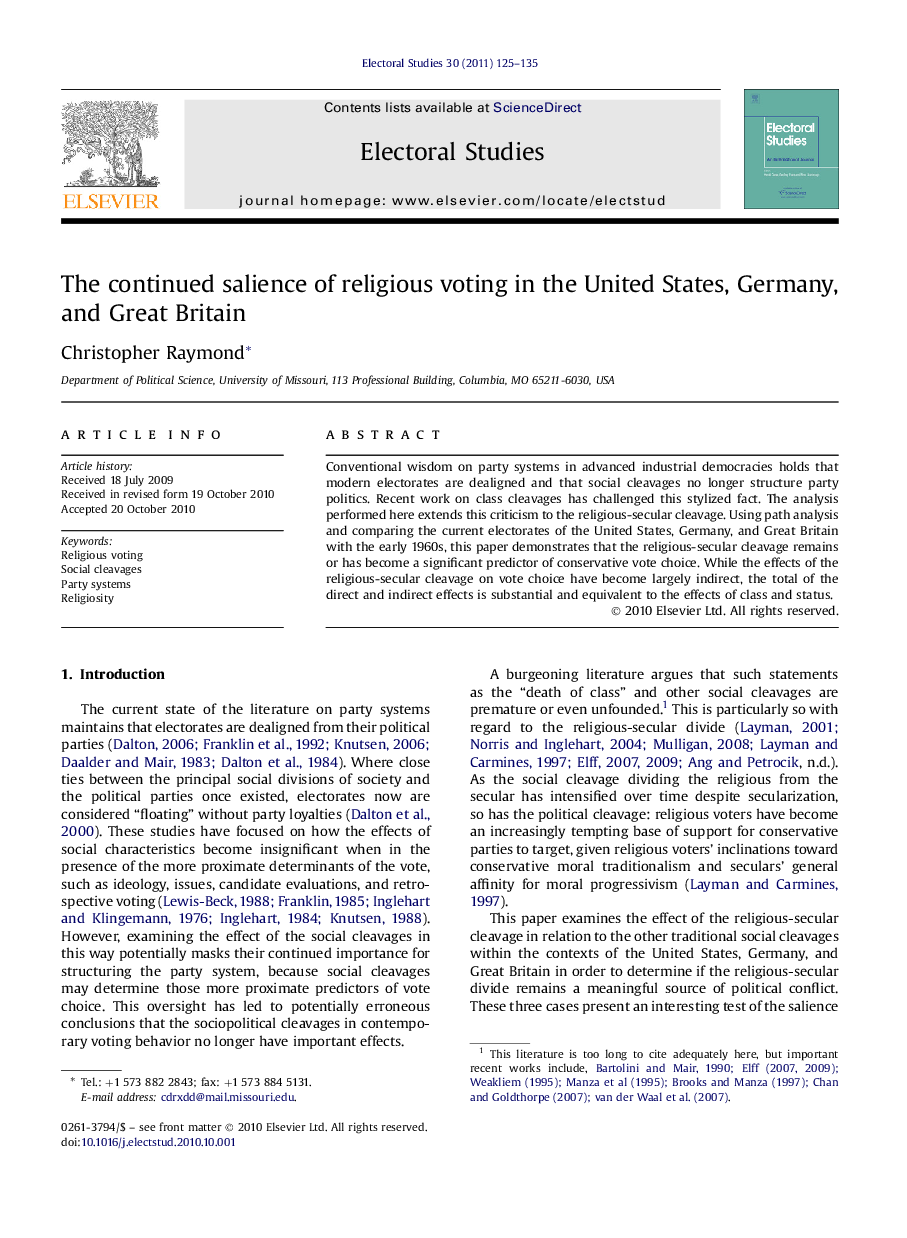| Article ID | Journal | Published Year | Pages | File Type |
|---|---|---|---|---|
| 1052237 | Electoral Studies | 2011 | 11 Pages |
Conventional wisdom on party systems in advanced industrial democracies holds that modern electorates are dealigned and that social cleavages no longer structure party politics. Recent work on class cleavages has challenged this stylized fact. The analysis performed here extends this criticism to the religious-secular cleavage. Using path analysis and comparing the current electorates of the United States, Germany, and Great Britain with the early 1960s, this paper demonstrates that the religious-secular cleavage remains or has become a significant predictor of conservative vote choice. While the effects of the religious-secular cleavage on vote choice have become largely indirect, the total of the direct and indirect effects is substantial and equivalent to the effects of class and status.
► Examines the religious-secular cleavage against dealignment arguments. ► Addresses endogeneity problems in previous literature regarding religiosity effects. ► Finds that religiosity effects on vote choice remain significant over time. ► Relative to more proximate vote choice predictors, religiosity effects are sizable. ► Findings contradict dealignment; social identities still politically relevant.
